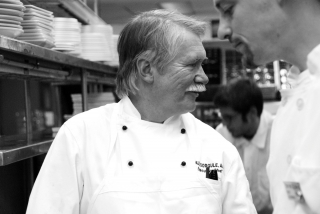
Another Year and More Opportunities
04 January 2023Consider the experiences of the past 20-plus years as you plan for the year ahead.
By Paul Sorgule, MS, AAC
Feedback & comments: This email address is being protected from spambots. You need JavaScript enabled to view it.
Well, here we are in 2023. Seems like yesterday we were welcoming in the new millennium. Much has happened over the past 22 years, much of it positive and some not so much. But we made it and a new year is upon us. What will we do with the opportunities that lay ahead? How will we take advantage of what has been learned and use that knowledge to become better and move the food industry forward? These are the questions that should drive our culinary education New Year’s resolutions.
What have we learned from the 2001 - 2022 experiences:
- What once was, may no longer be
The way we taught, what we taught, who we taught, and what outcomes we thought were most important are not as appropriate as they once were. - Flexibility is a key to survival
We discovered the ability to turn on a dime, reinvent what we do, and overcome some of our most ridged methods was the only thing that kept our heads above water. - Restaurants have changed the way they operate
Just as education has been forced to change, so too have restaurants. Menus had to be trimmed down due to supply chain issues and rising costs, pay scales increased dramatically as the industry tried to find ways to attract and retain employees, and outside dining became essential as restaurants scrambled to find ways to draw customers in while a pandemic was raging. - The restaurant industry has lost some of its appeal
Much of the restaurant industry’s workforce, once on government-paid leave, took the time to reflect on their careers and decided it wasn’t for them anymore. Winning them back with higher wages has not been enough. The environment and business nature need to be reevaluated. - Demand for restaurant food is very high
Restaurants are full, lines are long, and the only thing that gets in the way of significant increases in sales and profitability is the inability to attract employees. - Online education is appealing, but has its challenges
As of yet, the convenience of online education has not overtaken the need to learn in-person, benefit from learning how to work on a team, experience the pressure of timing, and relish the reward of hard work. - A shrinking college-age demographic is challenging admission efforts
Schools need to reevaluate their admissions strategies in light of student supply and demand. With the overabundance of culinary programs that grew from the early 1980s and the shrinking number of available high school graduates, schools have become very competitive. Those who offer the most were able to thrive, and those that could not became a statistic. This demographic shift is not going to improve for some time.
This does not paint a very positive picture, yet there are still many reasons to be optimistic. People not only enjoy eating out, but they also have an inherent need to do so. Socialization, something that has been lacking for the past three pandemic years, is a human need nearly as significant as survival and security. Human beings need to interact, talk and share ideas and opinions, listen and learn, and laugh and celebrate.
Restaurants have always filled these roles as well as the simple act of nourishing guests. Whatever challenges we face as a society, we can always turn to restaurants and the ability to break bread as a vehicle for solutions. The restaurant industry, as such, has always been very resilient, oftentimes one of the first industries to bounce back after difficult times.
This is apparent now as job and career opportunities abound. We can almost always promise career opportunities for those who study the culinary arts. As we reflect on 2022 and look forward to a new year, here are some resolutions to consider:
- Culinary programs must align with the industry they serve and establish what skills are most important in this day and age.
- Culinary programs must become far more flexible in terms of scheduling, content, time commitment, delivery methods, and verifiable outcomes.
- Culinary programs must consider adopting online options as a component of formal education, but not necessarily an exclusive method of delivery.
- Culinary programs must develop a value formula that can justify the cost and time involved vs. the more foundational school of hard knocks.
- Culinary programs must look at a much broader portfolio of teaching and training models that include degrees, certificates, certifications, rapid job training, apprenticeship, and career enhancement modules that are not for credit.
- Most importantly, culinary programs need to enjoy the opportunity for flexible thinking and non-traditional approaches geared toward the challenges of today.
How will you respond in 2023?
PLAN BETTER – TRAIN HARDER
Paul Sorgule, MS, AAC, president of Harvest America Ventures, a mobile restaurant incubator based in Saranac Lake, N.Y., is the former vice president of New England Culinary Institute and a former dean at Paul Smith’s College. Contact him at This email address is being protected from spambots. You need JavaScript enabled to view it..
